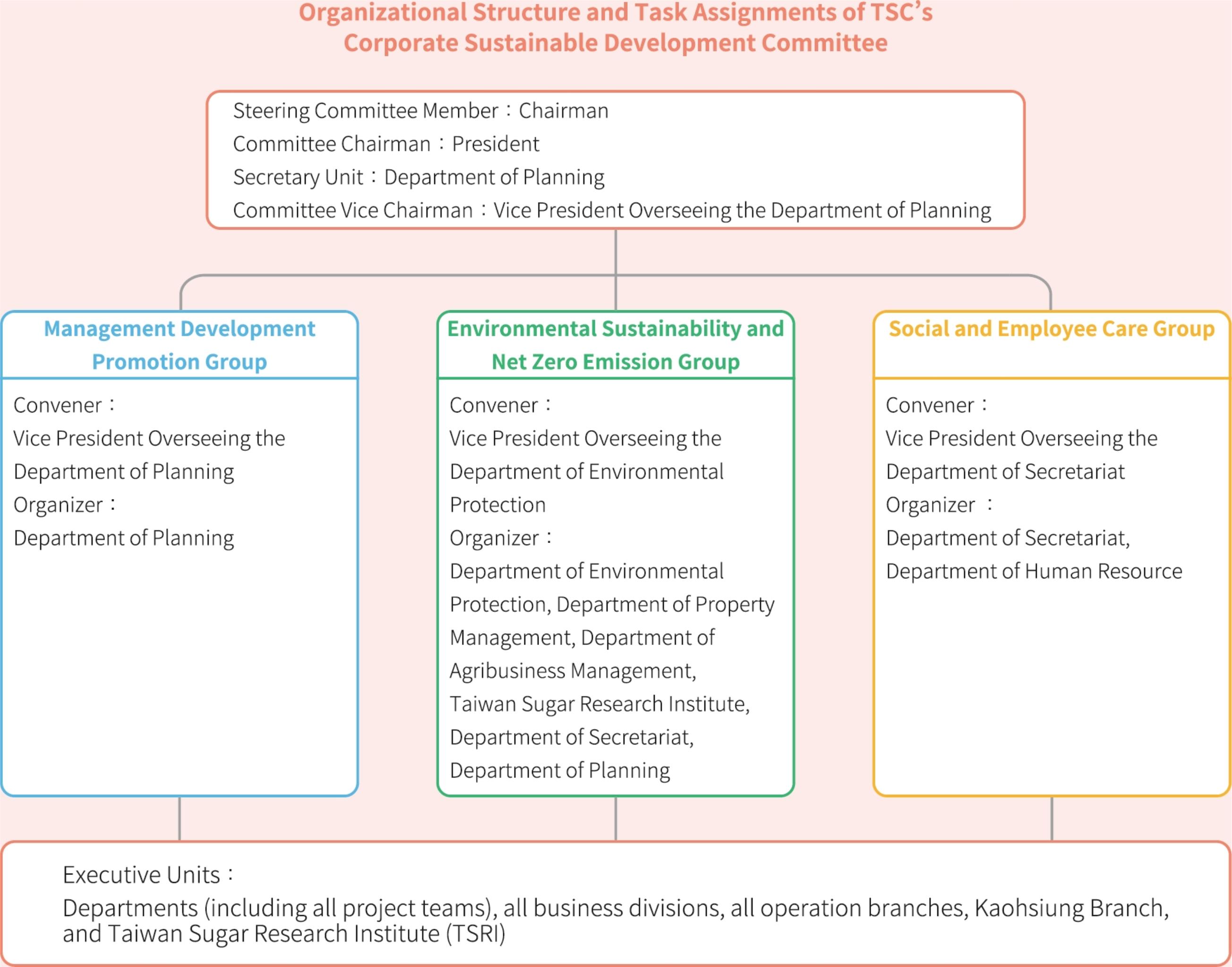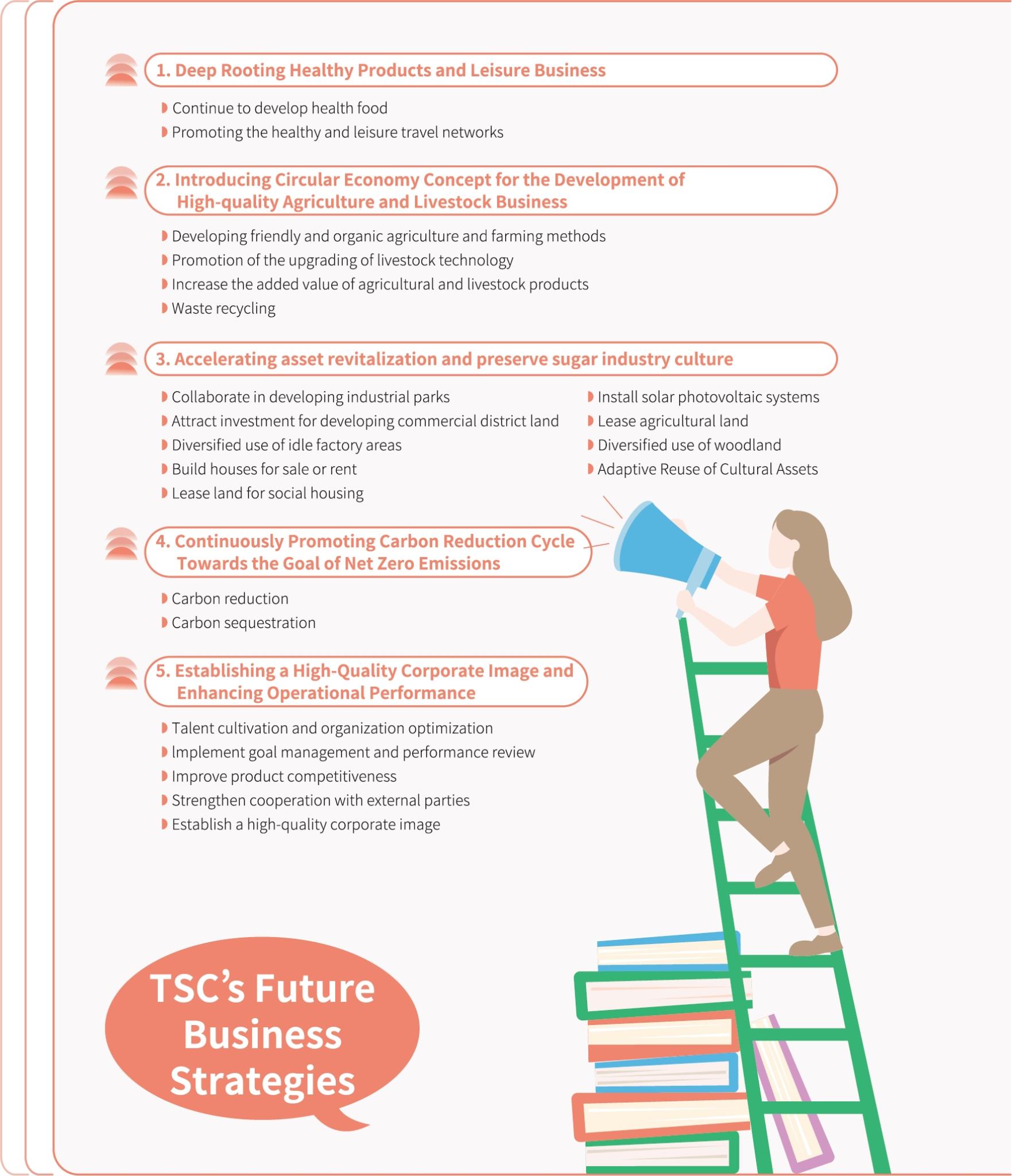TSC’s Corporate Sustainable Development Committee
TSC has established the “TSC Corporate Sustainable Development Committee," chaired by president, with the chairman serving as the steering member attending committee meetings on behalf of the board of directors. The committee includes members who are vice president and unit managers. Subcommittees under the committee include the " Management Development Promotion Group," " Environmental Sustainability and Net Zero Emission Group," and "Social and Employee Care Group," each led by vice president overseeing responsible for their respective areas of Governance (G), Environment (E), and Social (S) issues. Future business strategies related to sustainable development are submitted to the board of directors for deliberation annually.
The committee generally convenes one annual meeting, with additional meetings called by the chairperson when necessary. Its responsibilities include setting sustainable development policies, systems, related management guidelines and procedural documents, and incorporating the corporate sustainable development into the corporate operations and development directions. The organizers of each working group will set the group’s work plan for the following year based on the execution status of the annual business and track the implementation of the plans of the current year. Secretary unit (Department of Planning) will then organize the submitted results and report them to the committee.
Vice President overseeing the Department of Planning concurrently serves as the Chief Sustainability Officer (CSO), marking a new milestone in the sustainable management of TSC.
TSC’s Sustainable Development Strategies
The scientifically confirmed impacts of climate change have prompted significant international attention, with countries around the world declaring “net-zero emissions by 2030 or 2050” and actively formulating carbon reduction policies. In line with the global net-zero trend, Taiwan announced its goal of achieving “Net Zero by 2050” in 2021.
The trend of net zero transformation has emerged. For enterprises, the problems that will be directly or indirectly brought by extreme weather would impact corporate operations, responses to scenarios such as the low-carbon economy, carbon reduction lifestyle, disaster prevention, and energy shortage should also be made. TSC continued to monitor international climate change adaptation trends, conducted GHG inventories, and developed carbon reduction strategies. Taking into account the volatile international situation and TSC's own strengths and weaknesses, the overall business strategies for the following six years were set up in the face of the challenges and opportunities the Company is facing. Furthermore, the attainment status is reviewed and relevant strategies are adjusted on a yearly basis by applying PDCA. In addition to continuously improving operational performance, we also also plans our business blueprint based on government policies and changes in the industry environment. Focusing on the core of “Promoting New Agriculture” and “Circular Economy,”and having the major strategies of “Deep Rooting Healthy Products and Leisure Business,” “Introducing Circular Economy Concept for the Development of High-quality Agriculture and Livestock Business,” “Accelerating asset revitalization and preserve sugar industry culture,” “Continuously Promoting Carbon Reduction Cycle Towards the Goal of Net Zero Emissions,” and “Establishing a High-Quality Corporate Image and Enhancing Operational Performance.” These operational strategies align with the aforementioned core pillars of business development, promoting TSC's business upgrade, energy transition, and land resources utilization projects.





